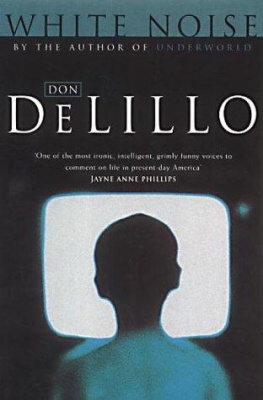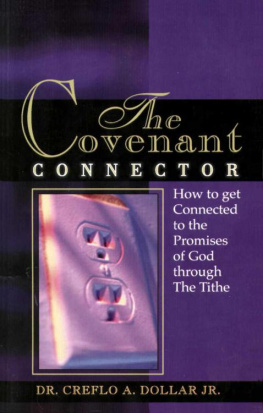
To the boys at 607: Tony, Dick and Ron
Happiness is not based on oneself, it does not consist of a small home, of taking and getting. Happiness is taking part in the struggle, where there is no borderline between one's own personal world, and the world in general.
Lee H. Oswald Letter to his brother
This was the year he rode the subway to the ends of the city, two hundred miles of track. He liked to stand at the front of the first car, hands flat against the glass. The train smashed through the dark. People stood on local platforms staring nowhere, a look they'd been practicing for years. He kind of wondered, speeding past, who they really were. His body fluttered in the fastest stretches. They went so fast sometimes he thought they were on the edge of no-control. The noise was pitched to a level of pain he absorbed as a personal test. Another crazy-ass curve. There was so much iron in the sound of those curves he could almost taste it, like a toy you put in your mouth when you are little.
Workmen carried lanterns along adjacent tracks. He kept a watch for sewer rats. A tenth of a second was all it took to see a thing complete. Then the express stations, the creaky brakes, people bunched like refugees. They came wagging through the doors, banged against the rubber edges, inched their way in, were quickly pinned, looking out past the nearest heads into that practiced oblivion.
It had nothing to do with him. He was riding just to ride.
One forty-ninth, the Puerto Ricans. One twenty-fifth, the Negroes. At Forty-second Street, after a curve that held a scream right out to the edge, came the heaviest push of all, briefcases, shopping bags, school bags, blind people, pickpockets, drunks. It did not seem odd to him that the subway held more compelling things than the famous city above. There was nothing important out there, in the broad afternoon, that he could not find in purer form in these tunnels beneath the streets.
They watched TV, mother and son, in the basement room. She'd bought a tinted filter for their Motorola. The top third of the screen was permanently blue, the middle third was pink, the band across the bottom was a wavy green. He told her he'd played hooky again, ridden the trains out to Brooklyn, where a man wore a coat with a missing arm. Playing the hook, they called it here. Marguerite believed it was not so awful, missing a day now and then. The other kids ragged him all the time and he had problems keeping up, a turbulence running through him, the accepted fact of a fatherless boy. Like the time he waved a penknife at John Edward's bride. Not that Marguerite thought her daughter-in-law was worth getting into a famous feud about. She was not a person of high caliber and it was just an argument over whittling wood, over scraps of wood he'd whittled onto the floor of her apartment, where they were trying to be a family again. So there it was. They were not wanted anymore and they moved to the basement room in the Bronx, the kitchen and the bedroom and everything together, where blue heads spoke to them from the TV screen.
When it got cold they banged the pipes to let the super know. They had a right to decent heat.
She sat and listened to the boy's complaints. She couldn't fry him a platter of chops any time he wanted but she wasn't tight with the lunch money and even gave him extra for a funnybook or subway ride. All her life she'd had to deal with the injustice of these complaints. Edward walked out on her when she was pregnant with John Edward because he didn't want to support a child. Robert dropped dead on her one steamy summer day on Alvar Street, in New Orleans, when she was carrying Lee, which meant she had to find work. Then there was grinning Mr. Ekdahl, the best, the only hope, an older man who earned nearly a thousand dollars a month, an engineer. But he committed cunning adulteries, which she finally caught him out at, recruiting a boy to deliver a fake telegram and then opening the door on a woman in a negligee. This didn't stop him from scheming a divorce that cheated her out of a decent settlement. Her life became a dwindling history of moving to cheaper places.
Lee saw a picture in the Daily News of Greeks diving off a pier for some sacred cross, downtown. Their priests have beards.
"Think I don't know what I'm supposed to be around here."
"I've been all day on my feet," she said.
"I'm the one you drag along."
"I never said any such."
"Think I like making my own dinner."
"I work. I work. Don't I work?"
"Barely finding food."
"I'm not a type that sits around boo-hoo."
Thursday nights he watched the crime shows. Racket Squad, Dragnet, etc. Beyond the barred window, snow driving slantwise through the streetlight. Northern cold and damp. She came home and told him they were moving again. She'd found three rooms on one hundred and something street, near the Bronx Zoo, which might be nice for a growing boy with an interest in animals.
"Natures spelled backwards," the TV said.
It was a railroad flat in a red-brick tenement, five stories, in a street of grim exhibits. A retarded boy about Lee's age walked around in a hippity-hop limp, carrying a live crab he'd stolen from the Italian market and pushing it in the faces of smaller kids. This was a routine sight. Rock fights were routine. Guys with zip guns they'd made in shop class were becoming routine. From his window one night he watched two boys put the grocery store cat in a burlap sack and swing the sack against a lamppost. He tried to time his movements against the rhythm of the street. Stay off the street from noon to one, three to five. Learn the alleys, use the dark. He rode the subways. He spent serious time at the zoo.
There were older men who did not sit on the stoop out front until they spread their handkerchiefs carefully on the gray stone.
His mother was short and slender, going gray now just a little. She liked to call herself petite in a joke she really meant. They watched each other eat. He taught himself to play chess, from a book, at the kitchen table. Nobody knew how hard it was for him to read. She bought figurines and knickknacks and talked on the subject of her life. He heard her footsteps, heard her key in the lock.
"Here is another notice," Marguerite said, "where they threaten a hearing. Have you been hiding these? They want a truancy hearing, which it says is the final notice. It states you haven't gone to school at all since we moved. Not one day. I don't know why it is I have to learn these things through the U.S. mails. It's a blow, it's a shock to my system."
"Why should I go to school? They don't want me there and I don't want to be there. It works out just right."
"They are going to crack down. It is not like home. They are going to bring us into court."
"I don't need help going into court. You just go to work like any other day."
"I'd have given the world to stay home and raise my children and you know it. This is a sore spot with me. Don't you forget, I'm the child of one parent myself. I know the meanness of the situation. I worked in shops back home where I was manager."
Here it comes. She would forget he was here. She would talk for two hours in the high piping tone of someone reading to a child. He watched the DuMont test pattern.
"I love my United States but I don't look forward to a courtroom situation, which is what happened with Mr. Ekdahl, accusing me
of uncontrollable rages. They will point out that they have cautioned us officially. I will tell them I'm a person with no formal education who holds her own in good company and keeps a neat house. We are a military family. This is my defense."
Next page















